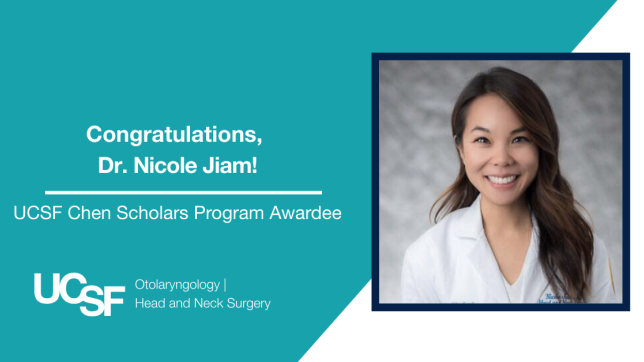For HHT Awareness Month, we want to highlight the role of the Department of Otolaryngology – Head and Neck Surgery at the University of California, San Francisco (UCSF OHNS) in the treatment of hereditary hemorrhagic telangiectasia (HHT). HHT is a genetic disorder which leads to development of abnormal blood vessels that are fragile and can bleed easily. A small abnormal blood vessel is called a telangiectasia and most commonly occurs on the face, hands, fingers, and the lining of the nose and mouth.
UCSF was designated a center of excellence by Cure HHT, the leading organization for HHT research, education and patient advocacy. The UCSF HHT Center of Excellence specializes in the comprehensive screening, diagnosis and treatment of HHT. It was established in 2014 with the support of Mark W. Wilson, MD, vice chair, Zuckerberg San Francisco General Hospital and Trauma Center. Because HHT symptoms can affect various parts of the body often early in a patient's life, the team of specialists at the Center consists of experts in the fields of OHNS, Interventional and Neurointerventional Radiology, Pediatrics, Medical Genetics, Hematology, Cardiology, Gastroenterology, Neurology and Pulmonology.
There are multiple members of the UCSF OHNS Rhinology team in who work with the HHT Center of Excellence, including Andrew Goldberg, MD, MS, Patricia Loftus, MD, Steven Pletcher, MD, José Gurrola II, MD and Anna Butrymowicz, MD, MS. The team includes practitioners who are skilled in the management of patients with HHT. Virtually all patients with this disorder are burdened with bleeding from telangiectasias in the nose, which can bleed daily and compromise quality of life for these patients. Bleeding from the nose, termed epistaxis, often requires intervention with medical therapy and surgical treatment to reduce this burden.
UCSF researchers are conducting studies to improve diagnosis and treatment of HHT. Two studies that are actively recruiting participants include a trial on pomalidomide for the treatment of bleeding in HHT and a study on cerebral hemorrhage risk in HHT.
HHT is a genetic disorder which affects approximately one in 5,000 people. The disorder is also referred to as Osler-Weber-Rendu Syndrome. HHT is caused by a mutation in one of several HHT-associated genes. HHT is autosomal dominant, which means that if one of your parents or a sibling has HHT, there is a 1 in 2 chance (50%) that you will have HHT.
To learn more about HHT Awareness Month and the HHT Center of Excellence, visit UCSF Health's website.




